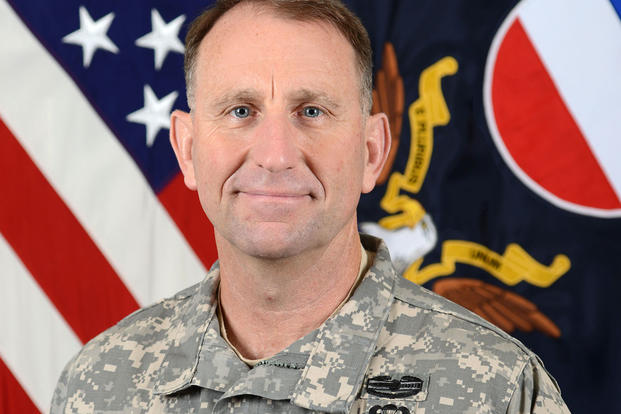The fate of Sgt. Bowe Bergdahl is now at the wide discretion of Army Gen. Robert B. "Abe" Abrams, son of the legendary Gen. Creighton W. Abrams, Jr. for whom the MIAI and M1A2 Abrams tanks are named.
As the convening authority in the case under the Uniform Code of Military Justice, Abrams, head of U.S. Forces Command, can order a general court-martial on charges of desertion and misbehavior before the enemy.
He can also order a special court-martial, recommend non-judicial punishment, or choose to take no action at all.
Abrams took over at Forces Command in August and became the convening authority in Bergdahl's case, succeeding Gen. Mark Milley, the new Army chief of staff.
Abrams is an armor officer like his father, who commanded the 37th Tank Battalion in the Third Army of Gen. George S. Patton during World War II. Creighton Abrams later succeeded Gen. William Westmoreland as U.S. commander in Vietnam and was Army chief of staff until shortly before his death in 1974.
It was Milley earlier this year who ordered an Article 32 fact-finding hearing in the Bergdahl case on charges of desertion and misbehavior before the enemy for leaving his post in eastern Afghanistan in June 2009.
Bergdahl was captured, reportedly by the Taliban-linked Haqqani network, and was held captive for nearly five years. He was freed in May 2014 in a controversial exchange for five detainees at the Guantanamo Bay, Cuba, naval base.
Last week, Army Lt. Col. Mark Visger, the hearing officer in the Article 32 proceeding, "recommended that the charges be referred to a special court-martial and that a punitive discharge and confinement would be inappropriate given all the circumstances," according to Bergdahl's defense team.
Visger's recomendations have not been made public. Bergdahl's lawyers have called for their release. "It is unfortunate that the government has not simply released Lt. Col. Visger's report, which is unclassified," said Eugene Fidell, Bergdahl's civilian lawyer.
In a filing, Lt. Colonel Franklin D. Rosenblatt, Bergdahl's military attorney, wrote to Visger that "Given your conclusion -- with which we agree -- about whether confinement or a punitive discharge are warranted, and the factors you cited in support of that conclusion, non-judicial punishment under Article 15, UCMJ, is the appropriate disposition."
Special courts-martial are convened for cases that would equate to misdemeanors in the civilian system and limit maximum punishments to one year of jail time, a reduction in rank and a bad-conduct discharge.
Gen. Abrams' courses of action are not limited by Visger's recommendations. It is not unprecedented for a convening authority to go against the recommendations of an Article 32 hearing officer.
During the Aarticle 32 hearing, Bergdahl's defense team argued that he walked away from his post in a misguided effort to report to a general officer 19 miles away on problems in his unit.
Maj. Gen. Kenneth Dahl, who conducted a lengthy preliminary investigation of the Bergdahl case, testified at the hearing that he did not believe Bergdahl deserved jail time.
"I do not believe that there is a jail sentence at the end of this process," Dahl said. "I think it would be inappropriate."
Dahl, who interviewed Bergdahl at length, described him as "young, naive and inexperienced," adding that "I believe he is remorseful."
-- Richard Sisk can be reached at Richard.Sisk@military.com.






























